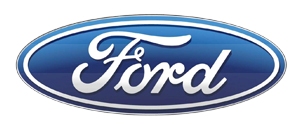 Top Class Action Lawsuits
Top Class Action Lawsuits
Snapchat got Slapped…with a potential consumer fraud and unfair business practices class action lawsuit this week—over allegedly exposing minors to “harmful, offensive, prurient, and sexually offensive” content without warning.
Here’s the skinny: the Snapchat lawsuit was filed by the mother of a 14 year old boy (John Doe), who alleges publishers are sharing content that parents would likely prohibit if they knew their children were being given unrestricted access. The complaint highlights stories like Buzzfeed’s “23 Pictures That Are Too Real If You’ve Ever had Sex With A Penis,” (illustrated with scenes from Disney animated movies) and Vice’s “Everything You Ever Wanted To Know About Penis Tattoos.” Who knew there was such a thing—?
According to the proposed suit, “Innocent pictures from John’s favorite Disney movies were perverted into obscene sexual images and text.” Nice.
Additionally, the offensive content is mixed with messages from Snapchat stating things like, “If They Don’t Snap You On A Daily Basis It Isn’t Real,” according to the complaint.
Snapchat allows users to send photos and videos that disappear. According to the suit, while the app is frequently accused of promoting sexting among teens, parents may not be aware of the explicit content being shared on Discover by media outlets, without any warning or age verification.
“Although Snapchat claims to have pivoted away from its founding roots which included promoting surreptitious ‘sexting’ with disappearing text and images, the content Snapchat develops and curates on Snapchat Discover paints a different and dangerous picture,” the lawsuit states.
Created in 2015, Snapchat Discover was designed as a place where handpicked media outlets could share content. According to the complaint, “Snapchat exercises direct control over its editorial content and what is published.”
The suit alleges that while Snapchat’s terms of service does say that its app is restricted to users older than 13 years old, it does not warn against potential offensive content found on Snapchat Discover.
Top Settlements
Caterpillar Exhaust(ed)…Here’s a beauty. Caterpillar Inc, has reached a preliminary $60 million settlement agreement in a defective products class action lawsuit alleging its engines equipped with exhaust emission control systems failed to work reliably, costing owners thousands.
The lawsuit claimed Caterpillar engines with the CAT Regeneration System (CRS), failed, causing the company’s ACERT C13 and C15 on-highway diesel engines to lose horsepower and shut down. The alleged defect resulted in Caterpillar-authorized dealer technicians having to repair the engines, they allegedly could not effectively do.
The Defendant denies the allegations in the lawsuit, and the Court has not decided who is right.
The Settlement offers payments to current and former owners and lessees of vehicles with EPA 2007 Compliant Caterpillar On Highway C13 and C15 engines (manufactured in 2006, 2007, 2008, and 2009) (“Subject Engines”).
Caterpillar introduced its ACERT engines as their alternative to exhaust-gas recirculation, or EGR, to meet 2004 emissions standards.
Class members who experienced no CRS-related repairs are eligible to receive, but not guaranteed, $500 for each subject engine.
Class members who experienced one to five qualified CRS-related repairs are eligible to receive, but not guaranteed, $5,000 per subject engine.
Those class members who experienced six or more qualified CRS-related repairs are eligible to receive, but not guaranteed, $10,000 per subject engine.
Each eligible class member also has the option—instead of seeking a payment as set forth above—to seek to claim losses up to a maximum of $15,000, experienced as a consequence of qualified CRS-related repairs. These losses can include but will not be limited to towing charges, rental charges and hotel charges. Proofs can include receipts, invoices, bills, etc.
All class members must file a claim in order to receive a payment.
The deadline to exclude yourself from the settlement is August 6, and the deadline to object to the settlement is August 21. The final fairness hearing is scheduled fro September 20, 2016.
Film Studio Interns Win One…Bit of a landmark this week—the employment class action lawsuit filed by interns who worked at 21st Century Fox Inc, and who alleged they should have been paid for their work at the company, but were not, reached a preliminary settlement this week.
According to court papers, Fox Searchlight Pictures and Fox Entertainment Group will pay $495 to each claimant who interned without pay for at least two weeks at various times between 2005 and 2010. Estimates suggest several dozen people are eligible to receive a share of the film studio intern settlement.
The ground breaking lawsuit sparked other, similar suits involving students and recent college graduates who alleged they worked free during their internships when, given their duties, they should have been paid. The lawsuits claim violations of state and federal minimum wage laws.
The two named plaintiffs in the 21st Century Fox class action, Eric Glatt and Alexander Footman, who interned on the 2010 movie “Black Swan,” would be paid a respective $7,500 and $6,000, provided the settlement agreement receives final court approval.
Ok, that’s a wrap folks… See you at the Bar!

